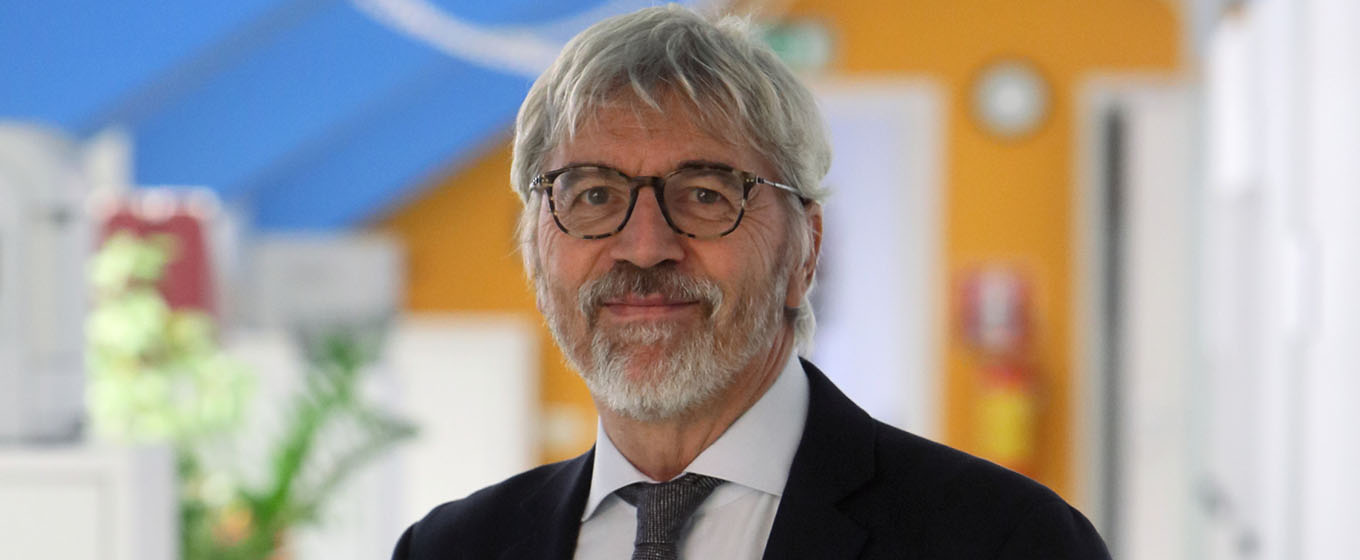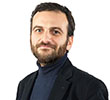Professor Fausto Colombo

There are three important factors:
- A crisis must be seen as dynamic. There are standard phases to a period of crisis which are studied as part of crisis management, but even before that, a crisis is a paradigm change which takes place over a period of time which is not fixed, so reading it as dynamic allows for an understanding of exactly where you stand when it unfolds.
- The exact nature of a crisis must be understood, by asking questions such as whether it has been triggered by something specific - in this case COVID-19 - or by the system displaying a lack of adequate preparation. Is the system ready to react, meaning that I just have to manage what is happening, or do I have to come up with a solution in several stages to deal with what might impact the system?
- The identity of the institution must be managed. Crises do not transform identity - they do not change it. The university can’t stop teaching, it can’t stop being international, it can’t stop focusing on the education of the younger generations. These are still its identity and its mandate. However, identity has to undergo a process of adaptation and re-invention during a period of crisis. This is perhaps what is nearest the university and companies that have been affected by the pandemic. It is about understanding how much my identity can adapt and rediscover any of its component parts to invent new ones while remaining true to itself.
What messages and content has Cattolica decided to focus on during the various stages of the COVID-19 emergency?
During the first phase, it was essential to inform people, one reason being that the pandemic arose at a crucial moment in the academic year: classes had just started up again for some faculties and there were graduation exams. It was a matter of getting information out about what was happening as quickly and clearly as possible and also getting information out about what was going to happen from the point of view of health measures and continuation of studies.
The second phase was that of understanding: we began using university resources to try to understand what was happening. We collocated the crisis in a narrative that allowed us to understand it. I saw a quote recently that said: “In the face of great pain, the only thing we can do is recount stories to try to understand it”. And it was like this, that in the face of this crisis, Cattolica put its knowledge and technical resources to use - the Faculty of Medicine was heavily involved – so that the emergency could be managed and understood. The Faculty of Medicine played its role, and other theorists and scholars took part in the debate on what exactly the crisis was.
The third phase is where we find ourselves now - the planning phase. It is a question of thinking about the future,
which is unclear and still uncertain. Uncertainty is a way of living that societies in the world are less and less accustomed to, and so we have had to plan differently, not knowing how things will evolve. It is a type of planning and communication which requires you to show your plans while still in the planning process, thus offering them as hypothetical.
How do you speak to students, and so to Gen-Z, during a crisis like the one we are experiencing?
When dealing with how we talk to people and especially to young people, a lot of emphasis is put on the technical
aspects and the language used because each generation uses different techniques and languages. I think it’s more
a question of communication style. Talking to students involves interacting with them, and not only does this mean talking to them, it also means listening to them. In my experience this is a great moment for listening. I have received so many more messages from students than I ever received before.
I would even say that remote studying has encouraged students to get in touch more, on the one hand, because
we were all in isolation, and on the other because students feel less inhibited by the respect they show to the professors, thereby making discussion easier. This often happens in a teaching model such as the Mediterranean European model where lecture style instruction is common, often as a reflection of the large numbers and questions of costs. In the current situation, though, one-to-one attention has become very important and this is also part of the ‘house style’ – Università Cattolica’s approach entails education which takes great account of the person and so it is important to listen and respond rather than communicate in a way which is rather heavy and aimed at a mass audience.
This crisis has made us rediscover this idea of education as looking after the person, every single person, and it is a
reciprocal education; that is, I as a professor can educate my student if I let my student educate me by, for example, letting me see a different point of view or by showing me tools that are very different from those that I have always used.
This idea of an educational relationship is obviously very old: in ancient Greece you only have to think of Socrates’
dialogues, which were based on the relationship between teacher and pupil and their continuous interaction.
Moreover, it is not always the case that students know how to use IT tools better than we do, and this is interesting
because it forced us to find common languages, to learn to use these tools together, as interlocutors. Forms of collective discussion among us professors and instructors are also growing. One example is Fishbowl, with virtual rooms of four people. One person ‘gets up and leaves his/her place’ for another person. These are things invented online but which actually offer a very old model of discussion. Anything can be invented; it is not a question of technology. Technology is at the service of our ability to imagine teaching/ learning and interact with students.
Finally, looking at the months of the pandemic that we have just been through, what has Università Cattolica done that has been the most successful, that has really hit the target?
Cattolica’s great intuition was that of never betraying its identity, that is, the attention to the person and the personal relationship with students: we don’t want to become an online university. We want to maintain this model of personal relationship at all costs, even by changing if this proves necessary. Technology changes? Well, we adapt by being flexible, by implementing different technologies. We are in the process of planning next year and there is no clear decision in favor of recorded classes or online classes: no, we will follow the wave. What is certain is that we will remain faithful to the three great ideas which our university is built on: first, education means establishing a personal relationship between professor and learner; second, not only must research be done according to the canons of good scientific research, it must also be to the collective good; third, a university must work for the good of the area in which it finds itself as well as for the good of society as a whole. Technologies
are tools to be employed to achieve these goals and they cannot justify and determine their own existence.



 Paolo Nusiner
Paolo Nusiner
